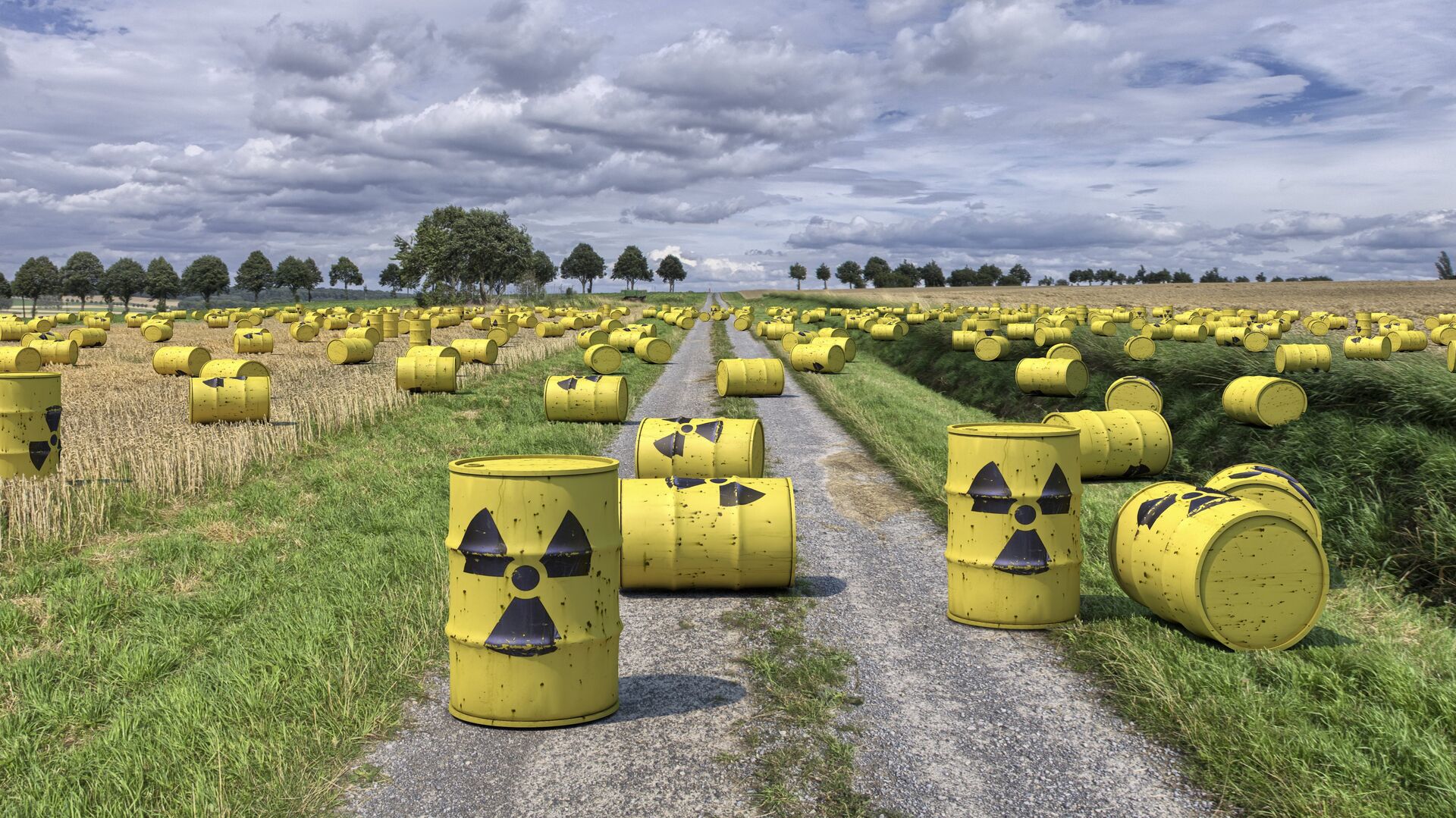US Regulator Approves Creation of Nuclear Dump in Texas Despite Opposition From Local Authorities

© Photo : Pixabay
Subscribe
The regulator’s ruling will likely be challenged in courts as it is in conflict with a recently introduced state law that prohibits the storage, transportation, as well as disposal of high-level radioactive waste in Texas.
The US Nuclear Regulatory Commission (NRC) has approved the creation of a nuclear dump in Texas despite opposition from local authorities and communities. In a press release posted online, the agency said it had issued a license to Interim Storage Partners (ISP) to construct and operate an interim storage facility for spent nuclear fuel in Andrews County for 40 years.
The company is now authorised to transfer and store up to 5,000 metric tons of high-level nuclear waste, the most dangerous type of nuclear waste, in the area. The NRC writes that ISP’s proposal had met the regulator’s standards relating to environmental impact, technical safety, and security. The NRC said that the company plans to expand the facility in the future for it to be able to store as much as 40,000 metric tons of spent nuclear fuel.
The company is now authorised to transfer and store up to 5,000 metric tons of high-level nuclear waste, the most dangerous type of nuclear waste, in the area. The NRC writes that ISP’s proposal had met the regulator’s standards relating to environmental impact, technical safety, and security. The NRC said that the company plans to expand the facility in the future for it to be able to store as much as 40,000 metric tons of spent nuclear fuel.
Texas Vows to Fight the Decision
The development comes several days after the governor of Texas, Greg Abbott, signed a bill into law that prohibits the transportation, storage, and disposal of nuclear waste in the Lone Star State. "Texas will not become America's nuclear waste dumping ground", Abbott wrote in a statement on Twitter, while criticising the Biden administration.
The Biden Admin. is trying to dump highly radioactive nuclear waste in west Texas oil fields.
— Greg Abbott (@GregAbbott_TX) September 14, 2021
I just signed a law to stop it.
Texas will not become America's nuclear waste dumping ground.https://t.co/tdZ2ALOaYT via @business
Critics of the NRC’s decision say that storing nuclear waste in an interim facility is dangerous. A leak or an accident at the facility would cause irreparable damage to the environment, they say.
"The concerns are what if there was a leak, if there was an attack, if there was a transportation accident. It could affect our entire area and we are a very large oil producer in the state", County Judge Charlie Falcon told Bloomberg.
Scientists have previously said that spent nuclear fuel, which is kept at power plants, should be stored deep underground. According to Interim Storage Partners, the company plans to store fuel in cask systems located above the ground until it finds a permanent location for the waste.
"The extensive analyses concluded that this facility’s commercial interim storage and transport operations satisfy all environmental, health, and safety requirements without negative impact to nearby residents or existing industries", the company said in a statement.
Decades-Old Problem
For decades, US scientists and authorities have been trying to find an answer to the question of what to do with the thousands of tons of nuclear waste that have accumulated at nuclear power plants across the country. In 2002, Congress approved the construction of a repository located deep within Yucca Mountain, Nevada. However, the project was torpedoed under President Barack Obama. His administration also asked experts to find ways to deal with the issue.
In 2012, a panel of experts published a set of recommendations that suggested creating "interim storage facilities" where nuclear fuel and waste can be stored while the government develops a permanent repository.
The report said that locations for interim facilities should be chosen with the consent of local communities and that companies that operate the facilities should be eligible for nuclear waste fee payments from the government.
The last point inspired private companies to present themselves as experts in nuclear clean-up. They have made various offers to federal regulators – from dismantling nuclear reactors, to shipments of nuclear waste. However, this has prompted opposition from the public and environmental activists, who fear that it is too risky to entrust private companies with handling the world’s most toxic materials.
In 2012, a panel of experts published a set of recommendations that suggested creating "interim storage facilities" where nuclear fuel and waste can be stored while the government develops a permanent repository.
The report said that locations for interim facilities should be chosen with the consent of local communities and that companies that operate the facilities should be eligible for nuclear waste fee payments from the government.
The last point inspired private companies to present themselves as experts in nuclear clean-up. They have made various offers to federal regulators – from dismantling nuclear reactors, to shipments of nuclear waste. However, this has prompted opposition from the public and environmental activists, who fear that it is too risky to entrust private companies with handling the world’s most toxic materials.
